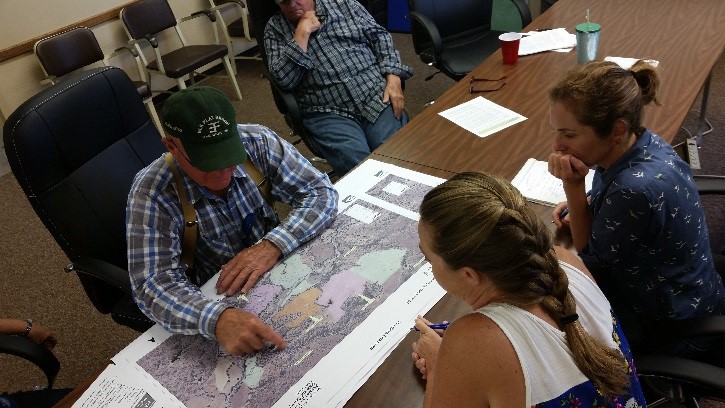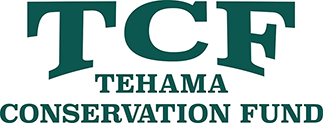Carbon Farm Planning
What is Carbon Farming? Carbon (CO2) can be stored long-term (decades to centuries or more) in soils in a process called ‘Soil Carbon Sequestration.’ Carbon Farming involves implementing on-farm practices that are known to improve the rate at which plants transfer CO2 from the atmosphere and convert it to plant material where it is stored, or sequestered, as soil organic matter. Carbon farming is successful when carbon gains resulting from enhanced land management and/or conservation practices exceed carbon losses.
What are the Benefits of Carbon Farming? Agriculture can significantly contribute to carbon balancing. An increase in soil organic matter on a farm or ranch through Carbon Farming allows for improved water holding capacity, water quality and erosion control, fertility and production, pest and invasives control as well as improved soil tilth.
Tehama County’s Carbon on the Range: The TCF was awarded $12,000 from Patagonia to implement Carbon on the Range, a Carbon Farm Planning Process for Tehama County ranchers. A rancher recruiting campaign, rancher selection criteria, and a selection committee were developed. Members of the Selection Committee included representatives of USDA’s NRCS, Point Blue Conservation Science, and the RCDTC, of which one rancher was selected as best fit for the program. Eight applications were received from agricultural producers to participate in this inaugural program. TCF hopes to provide the same CFP service to all applicants in the near future.
A Carbon Farm Plan was produced in collaboration with the rancher that serves as a guidance document for the producer to meet their natural resource management goals while supporting productive lands, wildlife habitat, and carbon sequestration. The Plan features recommended Carbon Farm practices that have the greatest potential for atmospheric carbon capture on their landscape as calculated by COMET-Planner and COMET-Farm online tools.

“Agriculture is the ONE sector that has the ability to transform from a net emitter of CO2 to a net sequesterer of CO2 — there is no other human managed realm with this potential.”
The TCF relies on grants and donations to bring these programs and more to our community. Donate to local conservation today!
